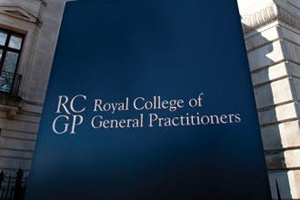RCGP vice-chair asks for ‘preferential’ GP investment

Health and social care systems that invest in general practice ‘at the expense of other parts’ of the NHS are cutting their overall deficits as a result, an RCGP official has said.
Professor Martin Marshall, RCGP vice-chair for external affairs, said that there is international evidence, which shows that health systems ‘that invest a significant amount of money in primary care and general practice services achieve better outcomes at lower cost’.
This comes after NHS England board papers revealed that the proportion of centrally allocated funding for general practice will fall to 7.1% in 2018/19 from 7.2% in 2016/17.
Speaking at the Westminster Health Forum on regional plans drawn up to overhaul health and social systems, Professor Marshall added that the most successful sustainability and transformation partnerships (STPs) in England have put in ‘a significant reinvestment in general practice at the expense of other parts of the health system’.
He said: ‘That’s a really difficult thing to do but in Norfolk and Waveney, for example, there is some early data suggesting that that preferential investment in general practice is reducing the overall deficit across the whole healthcare system.’
He said the reason for this is the ability of general practice ‘to manage risk’ when deciding how to treat a patient.
But he added that increased workforce and workload pressures in general practice ‘could negate any of the benefits that we’re seeing’.
Professor Marshall told Pulse that the STPs ‘play an important role in getting the funding out of NHS England and into the CCGs and into frontline primary care’, adding that it will be a ‘real problem’ for general practice if the partnerships fail.
His comments came after Chris Hopson, chief executive of NHS Providers, said at the conference that ‘it’s really pretty clear now that some STP areas may not be workable’.
This comes after NHS England’s Next Steps on the Five Year Forward View document announced that all STPs will eventually become ‘accountable care systems’.
But Mr Hopson said: ‘That vision is probably no longer right, because we can absolutely see that not all 44 STP areas will get there.’
Portfolio careers
What is the right portfolio career for you?












